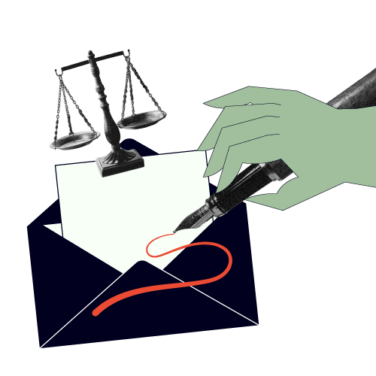Imagine your legal department as a bustling train station. Every matter—each contract, case, compliance task, or client query—is a train coming through, and each needs to be routed to the right track on time. Without clear scheduling and organization, trains get delayed, tracks get blocked, and the entire station becomes chaotic. This is where matter management steps in. It’s like the control tower of a legal team, keeping track of every moving part, so nothing gets lost or delayed.
As a legal practice manager, I’ve seen the value of matter management firsthand. It’s not just about keeping files organized; it’s about making sure each matter, from big cases to small requests, gets the attention it needs without overwhelming the team. Matter management helps legal departments function smoothly, so we can focus on what matters most: delivering solid legal work without the chaos.
Here’s my complete guide on matter management: What is it? How does it work? What are the benefits? Keep reading to learn more!
What Is Matter Management?
Matter management is a way for legal departments to organize and track their legal work. This includes everything from handling contracts and client issues to tracking deadlines and budgets for different legal cases, often called "matters." Matter management software helps make sure nothing falls through the cracks and lets legal teams stay on top of their work.
Why Is Matter Management Important?
Matter management is important because it helps legal teams work more efficiently. It saves time, keeps work organized, and improves communication. Without it, teams may struggle to find key documents, miss deadlines, or overlook important case details. By centralizing all this information, matter management creates a smoother workflow and a better way to measure legal outcomes.
Matter Management Vs. Case Management
Matter management and case management are often used interchangeably, but they’re not the same.
Matter management is a broader term that includes various legal activities, not just cases. Case management, on the other hand, usually focuses on handling specific legal cases or disputes.
Matter management may cover areas like compliance, contracts, and internal investigations, while case management is more focused on litigation and court cases. So, while all case management is a type of matter management, not all matter management is about cases.
What Are The Challenges In Bringing Matter Management To Legal Ops?
Bringing matter management into legal operations (or legal ops) can be tricky. Here are some common challenges:
- Resistance to change: Legal teams often stick with familiar processes, even if they're outdated.
- Integration issues: Matter management software may not always work well with other systems a company uses.
- High costs: Implementing new software can be expensive, especially for small legal teams.
- Training: Staff needs time and support to learn how to use new matter management tools.
- Data security: Legal data is sensitive, so keeping it secure while making it accessible to the team can be challenging.
Internal Vs. External Matter Management
Internal matter management deals with legal issues that happen within a company, like employee disputes, compliance checks, and corporate governance.
External matter management is about handling issues involving people or organizations outside the company, such as lawsuits, contracts with clients, or mergers and acquisitions.
Having different processes for internal and external matters helps legal departments prioritize and manage their workload more effectively.
What Are The Key Features Of An Effective Matter Management Solution?
An effective matter management solution usually has these key features:
- Centralized document storage: All relevant documents are stored in one place, making them easy to find.
- Task tracking: Assign tasks, set deadlines, and monitor progress to keep everything on schedule.
- Budget tracking: Track expenses to stay within budget for each matter.
- Reporting tools: Generate reports on work completed, budget use, and other important metrics.
- User permissions: Control who can access different parts of the system to keep information secure.
- Integrations: The system works smoothly with other software, like email and calendar tools.
6 Benefits Of Implementing A Matter Management System
Here are some benefits to employing a great matter management system for your law firm:
- Better organization: All information is in one place, making it easier to find and share.
- Time savings: Automated tasks and clear workflows save time for legal teams.
- Improved communication: Everyone involved has access to the latest information, making collaboration easier.
- Cost control: Budget tracking helps avoid overspending and can highlight ways to cut costs.
- Reduced risk: Compliance tracking and document management reduce the risk of missing deadlines or losing important data.
- Data insights: Reporting features help teams make data-driven decisions.
How To Choose The Right Matter Management Software For Your Legal Department
When choosing matter management software, consider these factors:
- Ease of use: Look for software that’s simple for your team to learn and use.
- Integration capabilities: Ensure it works with other systems, like email and accounting software.
- Customization: Find software that can be tailored to your department’s needs.
- Security: Make sure the software has strong data protection to keep information safe.
- Support and training: Choose a provider that offers support to help your team adapt to the software.
- Cost: Compare options within your budget, including any setup or ongoing costs.
With these tips, you can find the right solution to help your legal team manage matters more effectively and stay organized.
Legal Matter Management FAQ
Here are some questions I wanted to cover on this topic.
What is involved in effective legal operations and management?
Effective legal operations and management focus on creating streamlined processes for the legal matter management system, handling both internal and external needs. This includes working with corporate legal departments, coordinating in-house and outside counsel, and ensuring smooth operations across all teams.
The legal service provided by in-house legal professionals must align with the overarching goals of the company, while also addressing the specific needs of stakeholders and general counsel. This approach helps unify legal operations under a cohesive structure that maximizes efficiency and reduces redundancy.
How can technology and automation improve legal workflows?
Technology and automation play a crucial role in legal workflows by reducing repetitive tasks and increasing efficiency. Through workflow automation, legal teams can delegate time-consuming tasks to software solutions that streamline processes across all levels.
Cloud-based systems offer accessibility to important data from anywhere, while dashboards enable real-time tracking and analysis.
Legal technology supports these solutions, providing tools specifically designed for legal teams to work faster and smarter. By implementing these tools, legal departments create a flexible and highly responsive environment that supports seamless coordination.
How should legal teams handle document and data management for maximum security and efficiency?
Legal teams can handle document and data management by using a secure document management system. This ensures that legal documents are stored safely and can be easily accessed as needed.
A centralized location, often in the cloud, allows for all documents and data to be organized as a single source of truth, eliminating confusion over where information is stored. Easy access to data helps team members retrieve information quickly, while secure protocols maintain confidentiality.
Through centralized document management and secure data entry, legal departments can maintain a streamlined, accurate, and protected database.
What are the best practices for managing time and resources in a legal department?
Best practices for time and resource management include setting up structured systems for time tracking and timekeeping, which allow legal professionals to keep tabs on their work hours and maintain accurate billing for billable hours.
Resource allocation ensures that every team member has the necessary tasks assigned to them efficiently. Task management software can help manage workloads, organize templates, and create workflows that minimize time-consuming tasks.
By structuring time tracking, templates, and task management around team members’ specific roles, legal departments can operate efficiently, maintaining productivity across the team.
How can legal departments manage finances and improve performance?
Financial management and performance improvement in legal departments are achieved by tracking legal spend closely, especially in relation to billable hours. Decision-making tools that draw from data insights help ensure that resources are spent wisely, benefiting both clients and the company.
Ensuring client satisfaction is key, so legal teams need to carefully monitor their impact on client outcomes and address any gaps. By combining budget tracking with performance metrics, legal departments can manage finances effectively while delivering valuable legal service that meets client expectations.
What strategies should legal teams use for effective risk and compliance management?
Effective risk and compliance management require legal teams to prioritize risk management strategies that address potential issues before they arise. A secure document management system plays a major role in maintaining compliance, ensuring that sensitive information is protected and that all legal documents meet regulatory standards.
By establishing clear guidelines and utilizing specialized legal technology, legal teams can prevent compliance issues and safeguard the organization against risks. This proactive approach reduces legal exposure and strengthens overall organizational security
What Next?
For more legal insights and resources, subscribe to The Legal Practice newsletter and join a community of innovative legal practitioners shaping the future of law.


